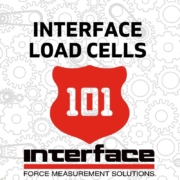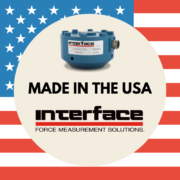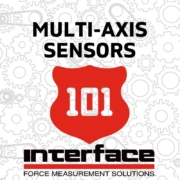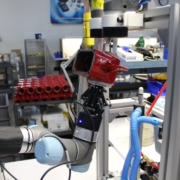Advancing Lithium-Ion Battery Test and Measurement
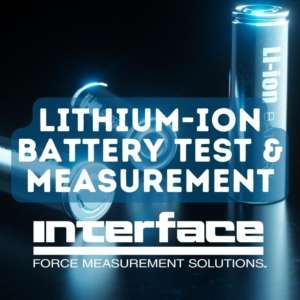 One of the key driving forces behind electric vehicle innovation is advancements in lithium-ion (Li-ion) battery technology. Exploring more efficient and powerful lithium-ion batteries increases electric vehicle adoptions and propels robust Li-ion battery developments into other industries that include industrial automation, robotics, consumer products, machinery and renewable energy.
One of the key driving forces behind electric vehicle innovation is advancements in lithium-ion (Li-ion) battery technology. Exploring more efficient and powerful lithium-ion batteries increases electric vehicle adoptions and propels robust Li-ion battery developments into other industries that include industrial automation, robotics, consumer products, machinery and renewable energy.
Today, lithium-ion batteries generally last two to three years. A lithium-ion (Li-ion) battery is an advanced battery technology, also referred to as a secondary cell, that uses lithium ions as the primary component of the electrochemistry design.
To achieve the goal of improved and longer-lasting batteries, a wide variety of testing is needed to confirm performance, capacity, safety and fatigue. Force measurement testing is used in many facets of lithium-ion battery testing. Force testing is done on the battery itself and is used for various stages within the R&D and manufacturing processes.
The lithium-ion battery market is also expanding rapidly. According to Markets and Markets research, this market is projected to reach $135B in 2031, up from an estimated $48.6B in 2023. Interface is poised to support the growth by supplying our industry leading force products to battery and electric vehicle manufacturers around the world.
Li-ion Battery Test & Measurement
There are several different ways force sensors are being used in the design, manufacturing, and testing of lithium-ion batteries. There is an even wider variety of measurement and high-accuracy sensors being used by engineers in this field. Interface has a product suited for the following test and measurement use cases.
Performance Testing: Load cells are used to measure the mechanical properties and performance of lithium-ion batteries. This is achieved by applying controlled loads to the batteries and monitoring the corresponding responses, such as force, strain, or displacement. Using this data, researchers can evaluate the battery’s structural integrity, durability, and mechanical behavior under different conditions.
Capacity Testing: Load cells can also be employed to assess the capacity and energy density of lithium-ion batteries. By subjecting the batteries to various load profiles and measuring the corresponding electrical outputs, load cells enable the characterization of a battery’s energy storage capabilities and performance over time. This is critically important as electric vehicles manufacturers push to get more range out of their vehicles.
Safety Testing: Lithium-ion batteries are prone to thermal runaway and other safety hazards. By integrating temperature sensors, pressure sensors, and load cells, it becomes possible to monitor and analyze critical parameters during battery operation. Load cells can detect abnormal mechanical forces or stresses that may indicate an impending failure, allowing for preventive measures or shutdown protocols to be implemented.
Environmental Testing: Load cells and other sensor technologies can be utilized to simulate real-world conditions and environmental factors that batteries may encounter during their lifespan. This includes subjecting batteries to vibration testing, temperature cycling, humidity exposure, or even simulating acceleration forces. By monitoring the battery’s response under these conditions, manufacturers and researchers can assess the battery’s performance and reliability in various environments.
Manufacturing Quality Control: Load cells can be used in battery manufacturing processes to ensure consistent quality and performance. By measuring and analyzing the forces and stresses experienced during assembly, welding, or compression processes, load cells can help identify manufacturing defects, inconsistencies, or deviations from design specifications.
Interface has detailed several examples of these types of testing in the following electric vehicle battery application notes:
Electric Vehicle Battery Load Testing Feature and Application
Electric Vehicle Structural Battery Testing
Electric Vehicle Battery Monitoring
Interface Products Used in Li-ion Battery Tests
Several types of load cells can be used in lithium-ion battery tests, depending on the specific requirements and parameters being measured. Here are a few commonly used load cell types in battery testing:
- Compression Load Cells are often employed to measure the compressive forces applied to lithium-ion batteries during performance or safety testing. Compression load cells are designed to accurately sense and quantify the forces experienced when batteries are subjected to compression, stacking, or other types of mechanical loading.
- Tension Load Cells are utilized when measuring the tensile forces applied to batteries. They are particularly useful in applications where the batteries are subjected to tension or pulling forces, such as in certain structural integrity tests or when evaluating the behavior of battery modules or packs under different loading conditions. Tension load cells provide high accuracy measurement.
- Shear Beam Load Cells are suitable for measuring shear forces, which occur when two forces are applied in opposite directions parallel to each other but not in the same line. In lithium-ion battery testing, shear and bending beam load cells can be used to assess the mechanical behavior of battery components, such as adhesive bonds or interfaces, where shear forces may be a critical parameter.
- Multi-Axis Load Cells are designed to measure forces in multiple directions simultaneously. These multi-axis sensors are beneficial when evaluating complex loading scenarios or when assessing the behavior of batteries under multidirectional forces. They provide a comprehensive understanding of the mechanical response of the battery in different directions.
- Customized Load Cells are engineered to the unique requirements of various testing options and use cases for lithium-ion battery testing and performance monitoring. These load cells can be tailored to fit the battery’s form factor, provide high accuracy, or measure specific force parameters critical to the testing objectives. Interface can work directly with our customers to understand the use case and design a product suited for your specific needs. Go here to inquire about Interface Custom Solutions.
Interface is also supplying force measurement products used in research and for mining operations that supply the materials used in lithium-ion batteries. To learn more about Interface’s products and offerings used in the advances of Li-ion batteries and electric vehicle design, test and manufacturing, visit our automotive solutions.
Additional Resources
Feature Article Highlights Interface Solutions for EV Battery Testing
EV Battery Testing Solutions Utilize Interface Mini Load Cells
Interface Powers Smart Transportation Solutions
Force Sensors Advance Industrial Automation
Evolving Urban Mobility Sector for Test and Measurement
